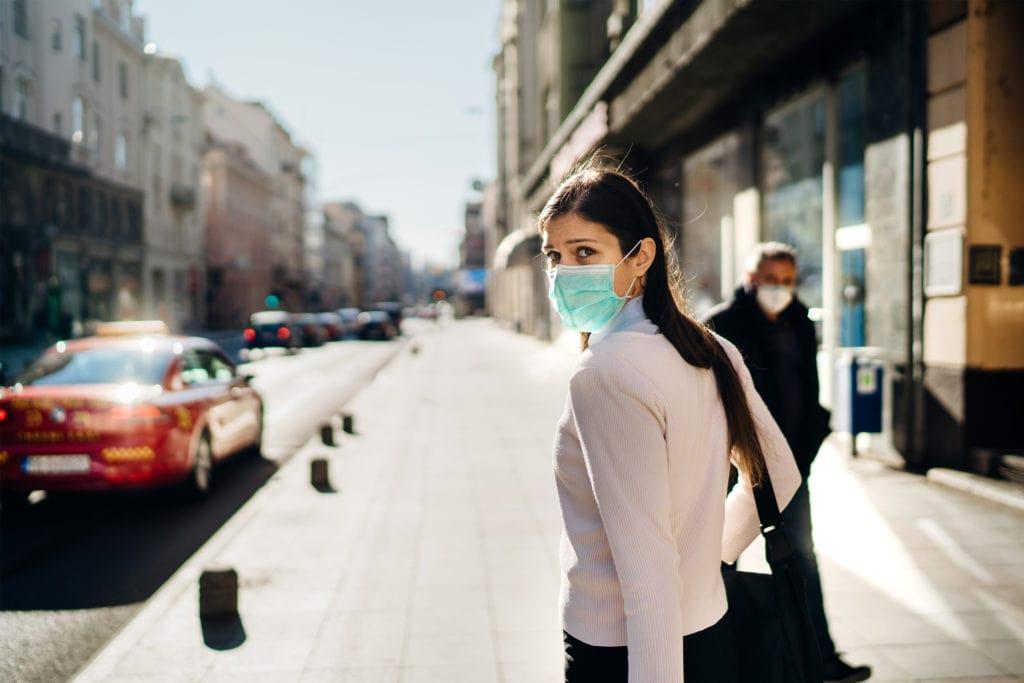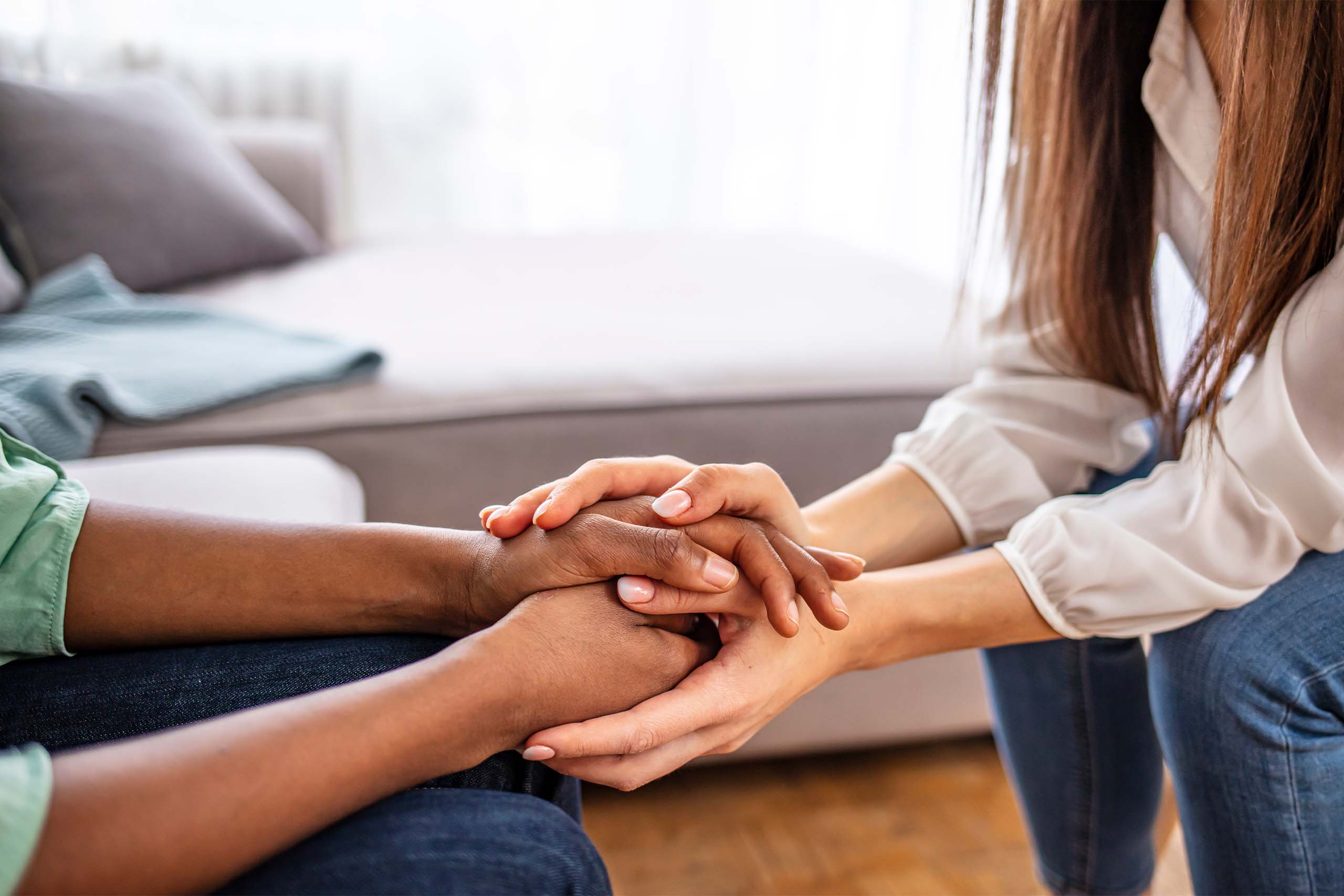Coping with Mental Health During COVID-19 Pandemic
- April 29, 2021
- 6 min Reads

It has been a year since the outbreak of the COVID-19 virus was reported (31st December 2019) for the first time from Wuhan, China. This RNA virus has mutated multiple times since its first official report. The latest variant has been reported to transmit faster and to cause lung infection (pneumonia) quicker than the earlier variants. Therefore, many countries have renewed the lockdown process.
This pandemic has taken many lives and has weakened the global economy. Due to its devastating impacts, it is difficult to maintain mental well-being which deteriorates further due to restrictions on social interaction. Doctors and medical researchers worldwide believe that the deterioration in mental health resulting from the COVID-19 pandemic may continue even after it has subsided.
Learning from the History:
- According to Steven Taylor (professor in psychiatry at the University of British Columbia), The life of 10%-15% people around the world will never return to how it was before the outbreak of the COVID-19 pandemic due to its impact on their mental health.
- According to the researchers of Black Dog Institute, Australia, Some people will experience long-term anxiety resulting from the COVID-19 pandemic.
- In British Medical Journal, a group of public health specialists has expressed their concern regarding the lasting effect of the COVID-19 pandemic on people’s mental health which is likely to last longer than the impact of this pandemic on physical health.
In 2003, there was a report of a 30% increase in suicide in people who are older than 65 years after the global outbreak of SARS. Therefore, psychologists are concerned about the mental health of people after the outbreak of the COVID-19 pandemic. Quarantine and lockdown were the strategies used by the governments of many countries to prevent the spread of the COVID-19 virus. However, they left a negative impact on people’s minds, as they prevented socialization.
On the other hand, the global economy took a downturn due to this pandemic which left many people without any job or business. The financial struggle is another reason behind severe depression.
Mr Joshua C. Morganstein (Assistant Director at Centre for the Study of Traumatic Stress) pointed out – “If history is any predictor, we should expect a significant ‘tail’ of mental health needs that continue long after the infectious outbreak resolves”. For example,
The victims of the Chernobyl nuclear accident in Ukraine or Hurricane Katrina in New Orleans suffered from PTSD and other types of psychological distress years after either of these disasters. - According to Luana Marques (clinical psychologist at Harvard Medical School), many people in New York or surrounding cities suffered from psychological distress after the 9/11 terrorist attack. A study was conducted on over 36,000 residents and rescue workers of New York. It revealed that 14% were suffering from PTSD and 15% were suffering from depression even 14 years after this attack.
This percentage is significantly higher than the rate of PTSD (5%) and depression (8%) in comparable populations.
Effects of COVID on Mental Health:
It was found through two recent reviews that the COVID-19 pandemic left a negative impact on the mental health of the participants with 16%–18% of them showing symptoms of depression and anxiety. These reviews showed that women, younger people, and people with poor sleep quality are at increased risk for mental health problems in comparison to others.
Long Term Mental Health Issues Resulting from COVID
OCD
OCD (obsessive-compulsive disorder) is likely to last longer amongst all types of mental health issues. According to Steven Taylor (Professor in Psychiatry), the stress of the COVID-19 will worsen the contamination obsessions or cleaning compulsion in people with a genetic predisposition towards OCD which is the manifestation of anxiety. Some people may suffer from Germaphobia if they do not receive mental-health treatment.
General Anxiety
General anxiety is another mental health problem resulting from the COVID-19 pandemic according to Yuko Nippoda (Psychotherapist and Spokesperson for UK Council for Psychotherapy). Some people tend to feel anxious at all times. Their anxiety is likely to worsen or last even when the pandemic ends. They may fear being infected by another variant of the COVID-19 virus.
Additional Read
Fight Back Anxiety: 10 Effective Ways to Cope with Anxiety
Sense of Detachment
The loneliness resulting from social isolation may cause different types of mental health problems in different people. It may be difficult for some people to rebuild their networks after having fewer close connections whilst others may stay away from the outside world to feel safe.
Resurfacing of PTSD
The COVID-19 pandemic may even trigger the symptoms of PTSD in people who have experienced mental trauma or a significant loss in life. The pandemic may trigger memories of trauma. It may happen subconsciously or consciously and there may be long-term negative effects.
Depression/Stress/Suicidal Thoughts
The unique nature and unprecedented scale of economic crisis resulting from the COVID-19 pandemic heighten the financial crises that already existed before this outbreak. Many people have been found to suffer from depression and stress and some people are found to have suicidal thoughts due to loss of income or unemployment resulting from this pandemic.
How to Deal with COVID Stress:
Eat Healthy
You may try to binge on unhealthy food, such as fried snacks, instead of eating fruits, vegetables, and other healthy food options when you are anxious or stressed. However, this will weaken your immune system. Hence, it is essential to include fruits and vegetables in each meal, to drink plenty of water, and to have snacks in moderate quantities.
Exercise
Your body will release endorphins in large volumes when you exercise. They interact with the brain receptors and reduce the perception of pain while triggering a positive feeling in the body. Your body remains active and your mind stays relaxed when you exercise. Exercising can also distract you from your current problems in life and boost your immunity.
Stay Socially Connected
You may talk to your friends, family members, relatives, and others over the phone or may chat with them via social media platforms. You will never feel alone if you stay connected to your loved ones. Once you feel relaxed, you will have a better mood, better sleep, and improved metabolism.
Be Kind
You can bring happiness into your life with small acts of kindness. For example, you may ask your neighbours if they are doing fine or if they need anything when they cannot go out. You will be treated the way you treat others. It is important to purchase what you need instead of indulging in shopping, as the essentials may become scarce during the pandemic.
Relax Your Body & Mind
You have to take breaks throughout the day in order to relax which is essential for your well-being. Your body needs sufficient sleep in order to have energy and to recharge the brain.
Make Time for Mindfulness
It is difficult to stay calm during a pandemic. You have to focus on the present instead of worrying about the future and this mindfulness exercise may help you in this scenario.
-
- Sit comfortably.
- Drop the shoulders and relax your jaw.
- Take deep breaths and count your breaths in the following manner.
- Inhale on 1
- Exhale on 2
- Inhale on 3
Try Something New
A sense of accomplishment can recharge your mind with positive energy. Therefore, you may try to do something (drawing, singing, playing an instrument etc.) that you always wanted to accomplish in your life. This will provide you with a new purpose while taking your mind off the pandemic.
Take Breaks from News Reports
If you want to stay updated with the latest and valid information, then trust reports from authentic sources. However, listening to the news pertaining to the COVID-19 pandemic or other disturbing events may increase tension and stress. Hence, it is important not to overindulge in watching the news.
Conclusion
Preserving mental well-being can be difficult when stress levels are high. Furthermore, the outbreak of the COVID-19 virus has added another layer of stress and anxiety to human lives.
Therefore, you have to take care of your health and mind, as they are interconnected. A healthy body enables you to fight infections and a healthy mind keeps stressors at bay.
Then the COVID-19 pandemic shakes the world. Family members fall ill, finances become uncertain, and daily routines are disrupted. While you adjust to the “New Normal”, Divine You Wellness is here to guide you. Click here to contact us.





